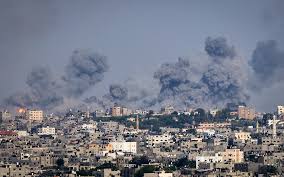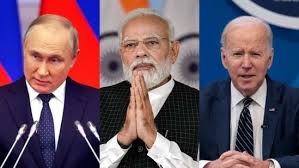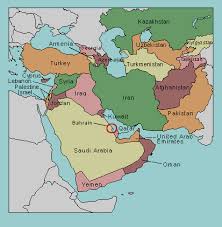International pressure on Israel and death of Iranian leadership have only further emboldened the resolve of the rival forces to intensify their fighting
by Prasad Nallapati*
I was visiting Norway and Denmark last week when the two countries were communicating, in their own way, their displeasure over Israel’s handling of Gaza situation.
Norway, along with Spain and Ireland, has declared its decision to recognize Palestinian statehood based on the pre-1967 borders, with effect from May 28.
Denmark has also been critical of Israel but not ready yet to go along with such a decision, though opposition parties propose to introduce a legislation to this effect in Parliament on that day. Supporting the order of the International Court of Justice (ICJ) that Israel halt its assault on Rafah in Gaza, its Foreign Minister Lars Lokke Rasmussen said “international law must be respected by all countries, and Denmark naturally expects Israel to comply with the ruling.”
The ICJ order of May 24 is, however, not enforceable and Israel has already declared that they would not comply with it.
It is surprising that Norway took so long to recognize Palestine despite it being the host of the peace negotiations between Israel and Palestinians that led to the Oslo accords in 1993 laying ground for a two-state solution.
Liberal Socialist governments of the Nordic countries had so far been hesitant to go along the path, partly because their foreign policies are aligned with the US and partly due to control of the Hamas, a declared terrorist group, over the Gaza. Israel’s ’s brutal bombing of the Gaza Strip since October last has brought popular pressure on their governments in Norway and Denmark to send a strong message to Tel Aviv.
International Pressure only Hardened Israeli Attitude
The diplomatic recognition of the Palestine state and the move by the International Criminal Court (ICC) to issue arrest warrants against Prime Minister Netanyahu and Defence Minister Yoav Gallant, along with Hamas leaders, hardened Israeli stance and intensified its attacks on Rafah.
The chief prosecutor of the ICC, a separate court also based in The Hague, sought on May 20 arrest warrants for senior Hamas and Israeli leaders for war crimes and crimes against humanity.
Outraged by the court’s seeming moral equivalence of democratically elected Israeli officials with the Hamas terrorists, Israel and the US have threatened to impose sanctions against those in the ICC responsible for the charges. Popular opinion in Israel, which has so far been critical of Netanyahu, has now veered round to back his military thrust into Rafah.
Netanyahu’s office is further hinting that they have no intention of leaving Gaza any sooner and may retain its forces for another ten years to root out terrorism and help establish a stable government. It’s more a wishful thinking to be able to wipe out the Hamas from there as that was the precise reason that Israel had earlier rushed to withdraw from Gaza Strip and hand it over to the Palestinian Authority.
Death of Iranian Top Leaders Will Not Alter West Asia Situation
The death of the Iranian President Ebrahim Raisi and Foreign Minister Amir-Abdollahian in a helicopter crash is not going to bring any significant change in Iran’s foreign and security policy. The Shia `Clerical Consensus’ has withered several such challenges and every time it only hardened its resolve to further its regional interests.
Raisi’s funeral has provided an opportunity for Iran’s “Axis of Resistance”, an informal political and military coalition, to meet and coordinate their strategies against Israel.
The Hamas launched retaliatory rocket attacks on May 25 from Rafah towards Tel Aviv for the first time since January. Israel confirmed launching of eight projectiles from Rafah but said its air defense system, Iron Dome, has intercepted them. At least two of the rockets did hit injuring a few of people.
The Hezbollah from Lebanon and the Houthis from Yemen are also expected to continue their strikes at Israel and its interests in the region.
Hence, more of the same situation is likely to prevail in the region. International pressure on Israel and death of Iranian leadership have only further emboldened the resolve of the rival forces to intensify their fighting.
(*Prasad Nallapati is President of the Hyderabad-based think-tank, “Deccan Council for Strategic Studies”, and former Additional Secretary to Govt of India)




